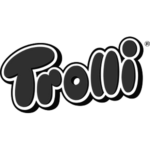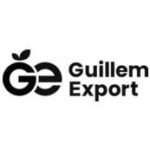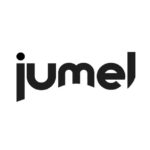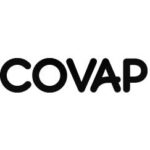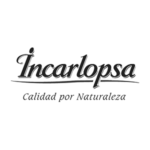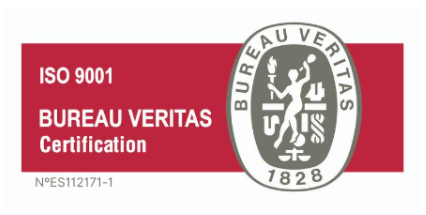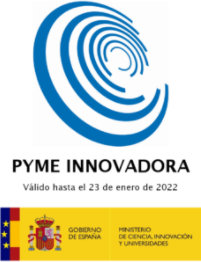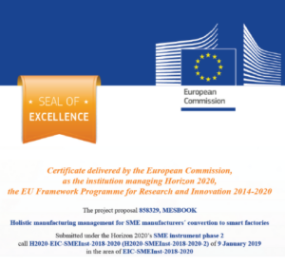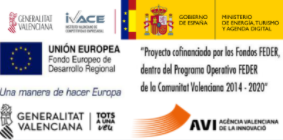Industria 4.0 para el sector alimentación y bebidas
SISTEMA MES PARA EL SECTOR ALIMENTARIO
Prácticamente la mitad de nuestros clientes en MESbook pertenecen al sector agroalimentario, donde hemos resuelto con éxito, retos clave en este sector, como es robustecer su sistema de Calidad y Trazabilidad, reforzar la seguridad alimentaria de los productos que fabrican y/o envasan, así como medir las desviaciones en sus costes variables (materia prima, mano de obra y energía) para identificar y cuantificar en € la causa de estas desviaciones.
Conectamos todos los actores de la fábrica (máquinas, personas, sistemas, procesos y producto/materia prima) para que, a partir de nuestra amplia experiencia en fábricas y del sector en particular, nuestra metodología de implantación y nuestra tecnología, transformemos digitalmente la fábrica y facilitemos a nuestros clientes su gestión en tiempo real, para fabricar cada día más, con mejor calidad y menor coste.
Retos en la industria alimentaria y de bebidas
- Maximizar el aprovechamiento de las máquinas.
- Control de variables críticas de proceso.
- Transición energética y sostenibilidad.
- Gestión ágil y sin papeles.
- Mejora continua de sus procesos y productos.
- Reducción de costes indirectos para la captación y gestión del dato para, convertirlo en conocimiento y actuar más rápido en base a información fiable y objetiva.
- Fiabilizar y robustecer su sistema de calidad y trazabilidad para cumplimiento de normativas y minimizar sus costes de NO-Calidad
- Garantizar de manera eficiente la seguridad alimentaria en sus productos (control de los PCC).
- Reducir costes en la fabricación.
- Identificar y cuantificar mapa de mermas.
- Medición del rendimiento de cada materia prima y valoración del cumplimiento en su especificación de cada proveedor.
Soluciones del software MES de industria alimentaria
- Sistema de producción conectado a máquinas y sistemas, operarios, procesos, y materias primas a través de multiples tecnologías (webservices, OPC-UA, código de barras, NFC, RFID, etc.)
- Digitalización del Plan de Calidad y lanzamiento de las pautas de control en fábrica, acorde a los productos manufacturados y según las líneas donde se fabriquen.
- Guía automática para operario y ejecución de los controles en planta adecuados y necesarios para el aseguramiento de la calidad de cada producto.
- Firma digital: Registro de los controles y eventos relevantes para la trazabilidad, con interpretación inmediata del resultado de calidad y con alertas ante cualquier NO-Conformidad, para lanzamiento ágil de acciones correctivas.
- Conexión a sistemas Scada, de visión, pesaje, medición y calidad a tiempo real, para captura de datos e interpretación de señales, consumos o condición de calidad real.
- Captación automática de paradas y motivos de las mismas.
- Activación de matrículas de cada materia prima, en ubicaciones de consumo a pie de línea de fabricación para el seguimiento de la trazabilidad.
- Conexión a máquinas y visualización del avance de la producción y cumplimiento de Calidad por secciones y máquinas.
- Conectividad a tramos en líneas largas para dibujar mapa de mermas e identificar en qué punto del proceso se está produciendo el scrap (y su causa), para lanzar acciones correctivas inmediatas.
- Control en tiempo real de puntos críticos de proceso (temperatura, ppm´s, detector de metales., etc), a través del cual se controlarán tendencias y desviaciones respecto del nominal fijado, aplicándoles SPC tradicional.
- Visualización de la información a tiempo real a nivel de los KPI´s de planta: Calidad, Productividad y Costes, por sección, línea, familia y producto y sus desviaciones respecto a los objetivos marcados.
- Cálculo de desviaciones en costes por MOD y Merma (proceso, sobrepeso y precio de compra), así como la causa de desviación en €.
- Gestión de la fábrica SIN Papel.
- Digitalización de las herramientas fundamentales del LEAN Manufacturing
Beneficios de implantar Mesbook en las fábricas
CONTROL EN TIEMPO REAL
Control de la producción a tiempo real de la fábrica y de las problemáticas que sucedan, pudiendo actuar sobre ellas en tiempo real.
FiabilidaD del sistema de calidad
Realizar la gestión y pasar las auditorias libre de papel, para conseguir las acreditaciones IFS y BRC, reduciendo los tiempos y costes asociados a tareas administrativas.
CONTROL DE RESULTADOS
Control sobre las variaciones de precios en materias primas y el impacto sobre la cuenta de resultados.
Control de maquinaria
Control de la disponibilidad y rendimiento de las máquinas. Ahorro en inversiones innecesarias.
Control de recursos
Optimización del consumo de los recursos materiales, energéticos y humanos, así como minimización del desperdicio.
CONTROL DE OEE
Conocimiento de dónde se producen las mermas en el proceso, ya sea entre secciones o en una línea, así como su cuantificación en €.
cONTROL SOBRECONSUMOS
Sistema inteligente para el control y seguimiento de sobreconsumos de materiales y desviación en cada OF a lo largo de toda la cadena de valor, con alertas para acción.
Control de trazabilidad
Trazabilidad durante todo el proceso productivo, desde la fabricación del semielaborado hasta el envasado del producto final.
CONTROL DE COSTES
Control y optimización de costes variables y visualización de las desviaciones contra el objetivo empresa. Ahorro costes indirectos relacionados con captura y gestión del dato en fábrica para convertirlo en información y conocimiento.
RECETA PERFECTA
Potencial de unir cualquier variable que ha participado en el proceso y conseguir lo que se define Golden Batch (Receta Perfecta, optimización de mermas, costes de mano de obra directa o calidad) por medio de Machine Learning y analítica avanzada.
Control en variaciones de precios
En materias primas y el impacto sobre la cuenta de resultados. Focalizar mejora en los productos menos rentables identificados mediante MESbook.
Impuesto sobre envases plásticos
Posibilidad de reducir la cuantía a pagar en el impuesto sobre envases plásticos no reutilizables.
Nuestros clientes del sector agroalimentario
